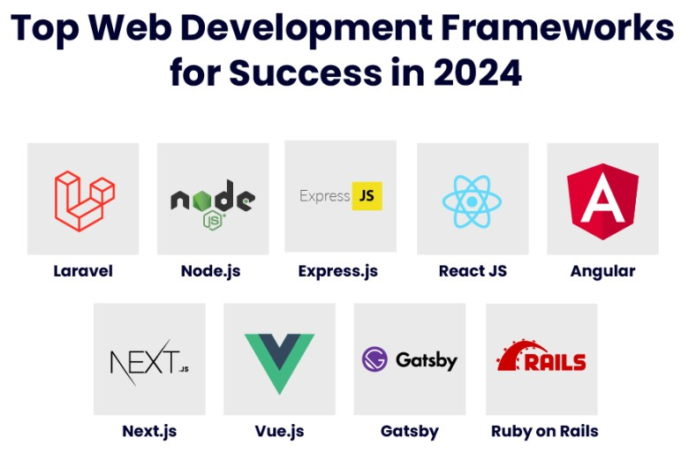They combine the best of web and mobile apps, providing users with fast, reliable, and engaging experiences. As we step into 2024, several frameworks continue to stand out in the development of PWAs. Here are the top five frameworks to consider for building Progressive Web Apps this year.
1. React
React developed by Facebook, remains one of the most popular frameworks for building PWAs. Its component-based architecture and powerful state management libraries like Redux and MobX make it a favorite among developers. With React, you can build highly interactive UIs with ease. Additionally, tools like Create React App simplify the setup of a new project, including the configuration for a PWA, such as service workers and web app manifests.
Key Features:
– Virtual DOM for efficient rendering
– Rich ecosystem and extensive community support
– Strong support for server-side rendering
2. Angular
Angular, maintained by Google, is another robust framework for developing PWAs. It offers a comprehensive suite of tools and libraries to build high-performance applications. Angular’s CLI (Command Line Interface) makes it easy to add PWA features to your project, such as service workers for offline capabilities and push notifications.
Key Features:
– Two-way data binding
– Dependency injection
– Built-in support for PWA functionalities through Angular Service Worker
3. Vue.js
Vue.js has gained a lot of traction due to its simplicity and flexibility. It’s a progressive framework, which means you can adopt it incrementally depending on your project needs. The Vue CLI provides a PWA plugin that helps you set up a fully configured PWA with minimal effort. Vue’s reactivity system and lightweight nature make it an excellent choice for building fast and responsive web apps.
Key Features:
– Reactive data binding
– Component-based architecture
4. Svelte
Unlike traditional frameworks that do most of their work in the browser, Svelte compiles your components into highly efficient imperative code that directly manipulates the DOM. This results in faster runtime performance and smaller bundle sizes, making it a strong candidate for PWA development.
Key Features:
– Zero runtime overhead
– Highly efficient reactivity system
– Small bundle size
5. Ionic with Angular/React/Vue
Ionic is a powerful framework for building cross-platform apps, and it works seamlessly with Angular, React, and Vue. The framework includes a rich set of pre-built UI components, making it easy to build beautiful and interactive UIs. Ionic also offers tools like Capacitor, which allow you to access native device features and deploy your PWA as a native app.
Key Features:
– Cross-platform development (web, mobile, and desktop)
– Extensive library of UI components
– Capacitor for accessing native device APIs
Conclusion
Choosing the right framework for building Progressive Web Apps depends on your specific needs and preferences. React and Angular are great for large-scale applications with complex state management needs, while Vue.js offers simplicity and flexibility for smaller projects. Svelte’s unique approach can lead to highly efficient applications, and Ionic provides a comprehensive solution for cross-platform development. Each of these frameworks brings its strengths to the table, making them excellent choices for building high-quality PWAs in 2024.

